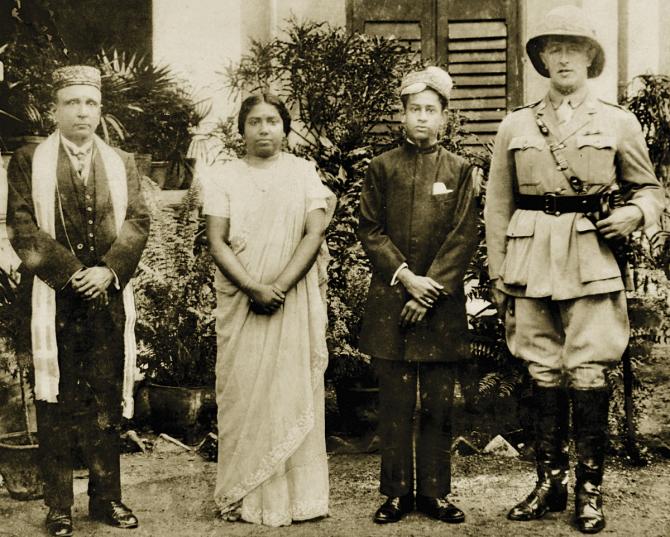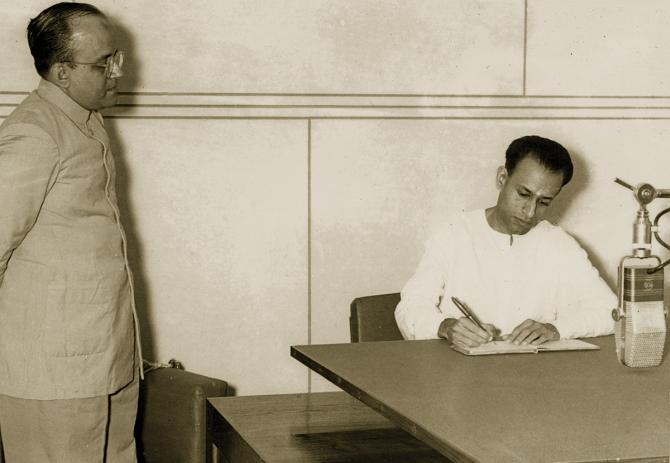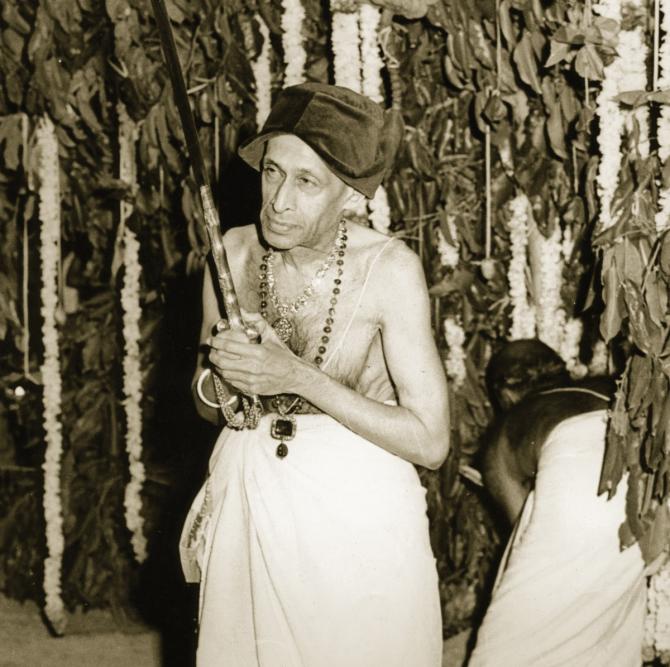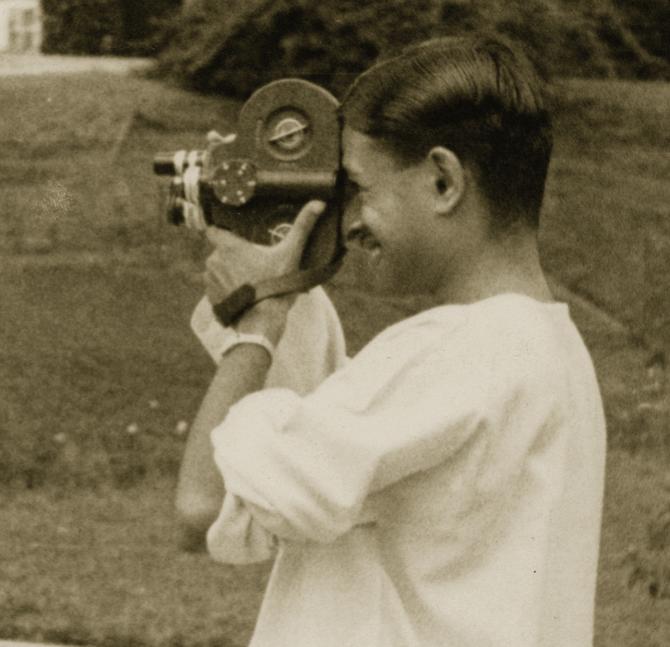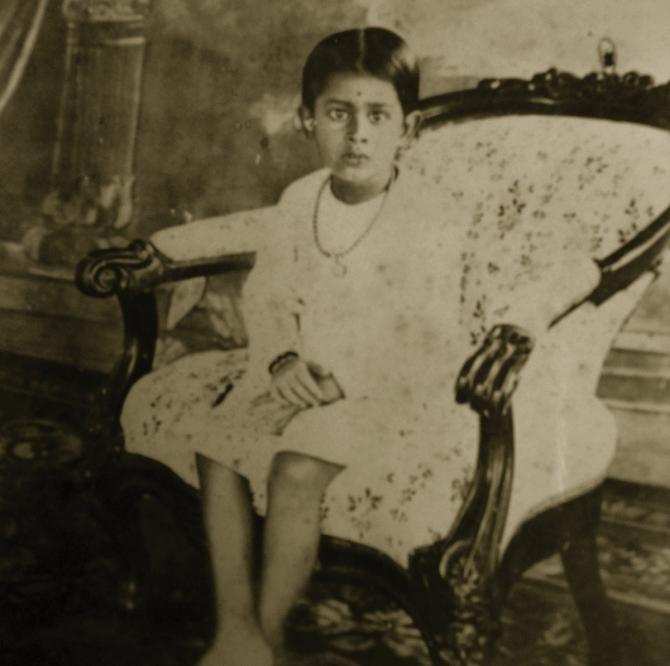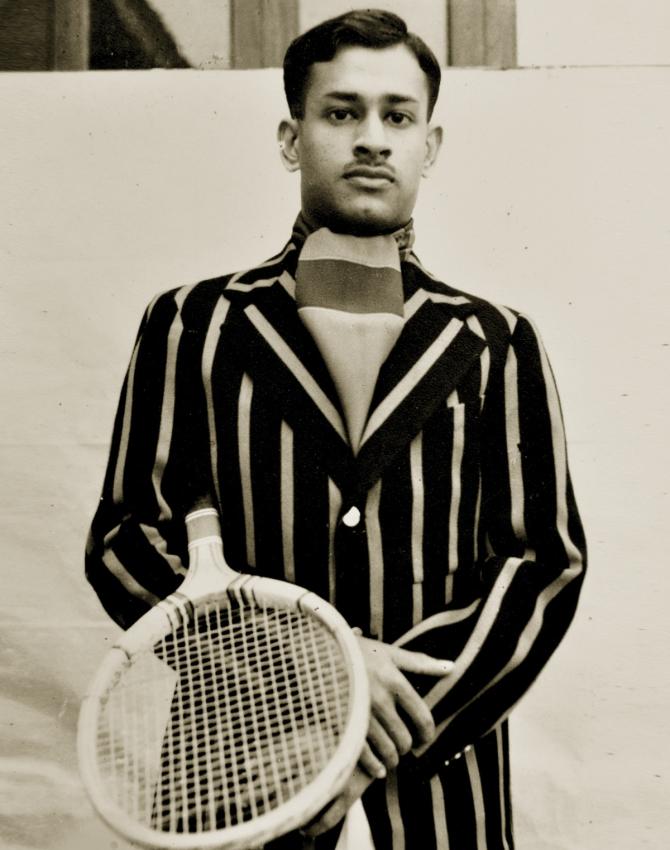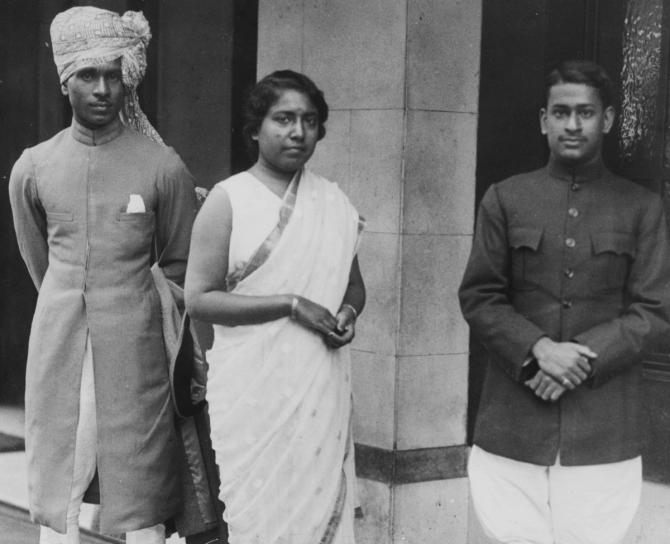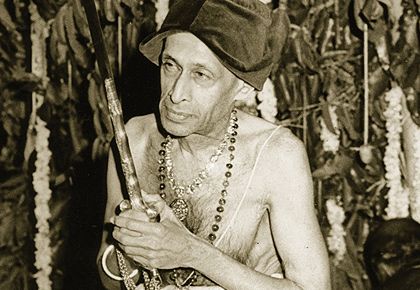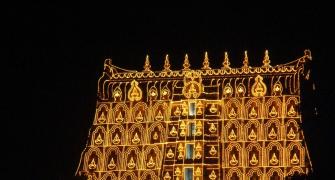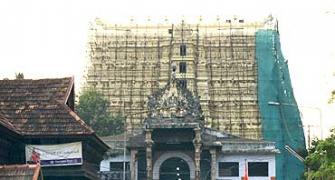'Simplicity was very much a hallmark of the Kerala lifestyle those days.'
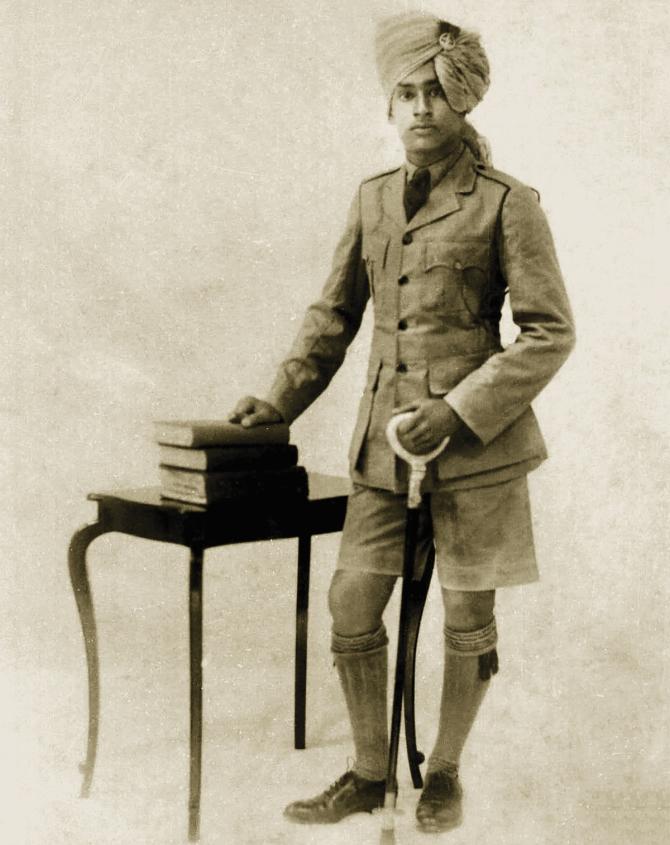
What did the last king of Travancore choose to live a simple life?
Why is it important to know who he was?
Why is it important to understand his legacy?
Princess Aswathi Thirunal Gouri Lakshmi Bayi provides the answer in her 13th book, History Liberated: The Sree Chithra Saga (Konark Publishers), which looks at the lives of her uncle and her grandmother -- the Maharaja of Travancore, Sree Chithira Thirunal Rama Varma, and his mother, Maharani Setu Parvathi Bayi.
In this exclusive interview with Rediff.com's Shobha Warrier, the princess explains why she decided to write the book.
I still remember the shock I had when I visited the Kowdiar Palace (in Thiruvananthapuram) in the mid-eighties to write a story on how the Travancore royal family lived.
Unlike other palaces in India, the Travancore palace was a simple household with absolutely no glitter. Unlike other royal families, the Travancore royal family lived a very simple life.
Did you ever wonder why your family was totally different from other royal families?
You mentioned your visit to our home and your meeting with some of the other members of our family. We have vastly differed from our counterparts, especially in the north.
I think, basically, the Kerala lifestyle is founded on simplicity. Till about 50-60 years back, there was a uniformity in lifestyle -- whether you are a prince or a poor man, everybody wore a white dhoti.
In our family, the gold-laced dhoti. So, the dhoti was the common costume.
Everybody sat on the floor and ate from the banana leaf; there were no fancy dining tables. Even in my childhood, spoons was made out of the leaves of the jackfruit tree. It was the same for everybody.
When you cleaned your teeth in the morning, there was no fancy paste; everybody used tooth powder made from natural ingredients.
When it was hot, everybody used a hand fan made out of palm leaves. And for washing our hands and legs, we had a kindi (a kind of vessel).
Mud and granite pots were used for cooking and the ladles were made of coconut shells. It was common everywhere.
So, simplicity was very much a hallmark of the Kerala lifestyle those days.
Being in the position of a maharaja, certain concessions had to be made to a more fancy or exalted lifestyle. That cannot be helped. But, basically, in the midst of the chandeliers and the Venetian glasses, the lifestyle was very simple.
We have grown up seeing that simplicity and it comes automatically to us.
I always opt for my Kerala mundu for convenience, practicability and by choice.
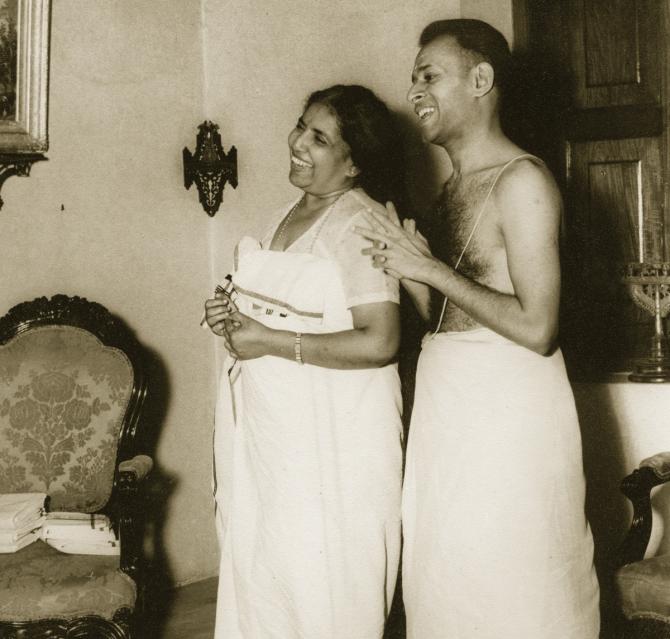
You titled the chapter when Sree Chithira Thirunal stopped being the maharaja as The Full Stop. It must have been the end of an era.
How did he take his new life as an ordinary citizen?
I was too young at that time to give an evaluation of that.
All I know is that we did not notice any changes in his demeanour or in his conduct.
One thing I can tell you, after signing the Instrument of Accession and when Travancore ceased to exist, my elder sister was having a fever.
So, after signing, he came to her bedroom, sat down beside her for an hour and told her stories to regale her.
How many people would have been able to do that? But then, that was Chithira Thirunal.
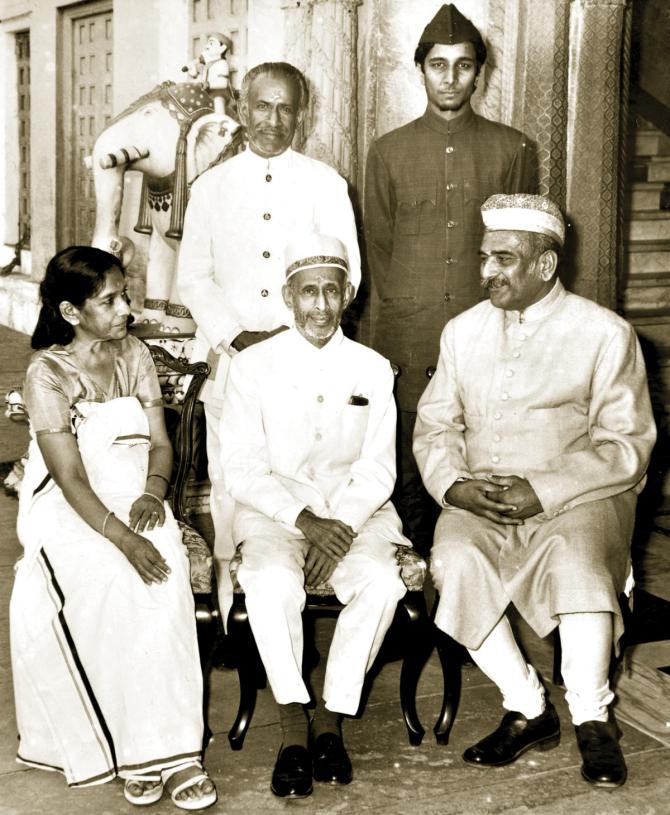
Standing, left to right: Elayaraja Uthradom Thirunal and Yuvaraj Ananth Narayan Singh of Banaras.
How enriching was your experience of writing a book like this? Did it help you understand your uncle and grandmother more?
This is my thirteenth book. With 12 books behind me, three of them being English poetry, this book was an exceptional experience. At times, it was exciting; at times it was elevating; at times, it was enlightening and at times, it was agonising. I lived through time.
The writing of the book took me over three years, but it was not a hard task, it just flowed.
Initially, I did not know how to start, how to deal with the situations, what to include, what not to include and how to conclude. My one solution to everything in life is Sree Padmanabha Swamy. His blessings alone have made me write the past 12 books. In this case, I requested Him to hold my hands and make me write.
It is that divine strength that has made me write the book. I have no doubt about it.
Of course, a huge number of people are not even going to accept it. They may say that I am dramatising or pretending. But it doesn't matter. Each person can have his/her own conclusions. But this is my experience.
I have grown with the book. In three years, a part of me has aged more while a part of me remains as it is. A part of me has grown with the book. That is another very significant factor.
I don't know if this experience has helped me understand my grandmother and uncle better because, most of the times, it was a confirmation of what I know about them or what my conclusion about them was.
It was not something that came to me as the enlightenment of what they were. It is just a reaffirmation of the many things I knew about them.
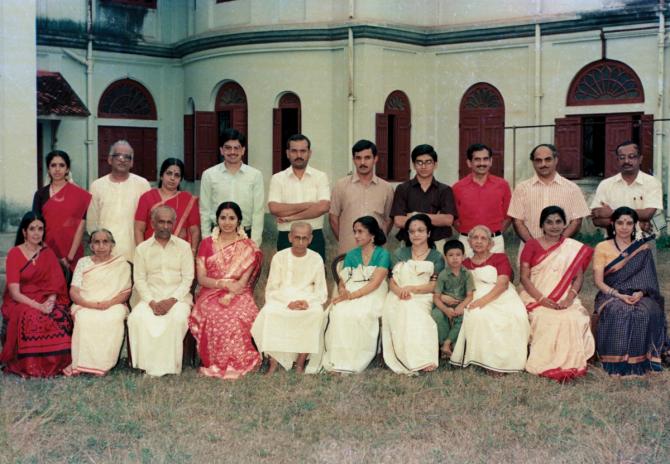
You have called the book History Liberated. How do you liberate history?
I had decided to call it Untold Story, until my niece told me there are around six books doing the rounds under the same title. Then, many other titles were considered.
My elder sister asked, "What about Liberated History?" It suddenly struck me that would be the best; I just turned it and made it History Liberated because it is a liberation from the drapes of silence. Not silence imposed by others, but self-imposed.
I have been keeping silent for so many years. But then I felt that the time has come and any delay would be dangerous, dismal and inadvisable.
It was a part of history closed up and held under wraps that was being liberated.
So, in every way, to my way of thinking, it was perhaps the best title I could really give.
Glimpses from History Liberated: The Sree Chithra Saga

